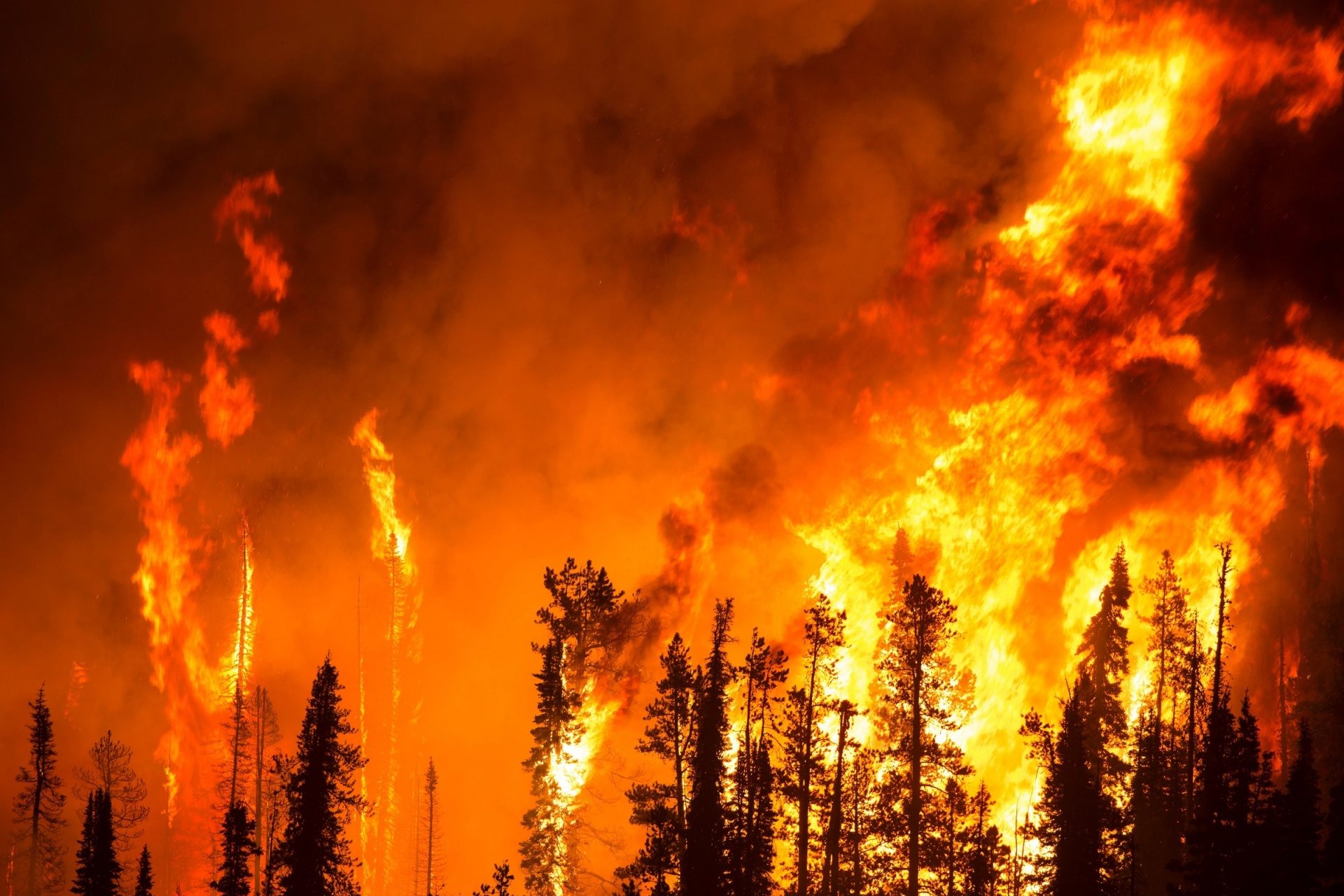The report shows that human activity caused the planet’s climate to warm up at a faster rate since 2,000 years.
Humans have caused irreversible damage to planet earth as nations failed to minimise fossil-fuel emissions, the UN’s Intergovernmental Panel on Climate Change [IPCC] report concluded on Monday.
According to the report – approved by 195 governments and based on more than 14,000 studies – global warming will keep intensifying over the next 30 years, with just a small chance remaining to prevent more drastic consequences of the climate crisis.
Since the 19th century, humans have caused the planet to heat by around 1.1 degrees Celsius and global warming is expected to rise to about 1.5 degrees Celsius in the next two decades, with more heat-waves expected to occur in the future.
Commenting on the latest findings, UN Secretary-General Antonio Guterres said that the report is “code red” for humanity.
“Today’s IPCC Working Group I Report is a code red for humanity…global heating is affecting every region on Earth, with many of the changes becoming irreversible,” said Gueterres.
The report said heatwaves used to occur once every 50 years, whereas now they happen once per decade due to global warming as droughts become more common than ever. Heavy rain is now 1.3 times more likely.
While drastic consequences will be witnessed in the coming decades, some are already being experienced around the world. Recent wildfires in the US, which killed hundreds in June, Brazil’s worst drought in 91 years and other blazes currently ripping through Europe are just a few.
OPINION: Why climate change should be a top priority for Qatar and GCC region
“The heat wave in Canada, fires in California, floods in Germany, floods in China, droughts in central Brazil make it very, very clear that climate extremes are having a very heavy toll,” said Paulo Artaxo, a lead author of the report and an environmental physicist and the University of Sao Paulo.
Recent wildfires in Turkey have engulfed major parts of the country and expanded to Greece, requiring global rescue missions to contain them.
If no action is taken, summertime sea ice atop the Arctic Ocean is expected to completely be wiped out by 2050, with sea levels expected to continue to rise for hundreds or thousands of years even if global warming is contained at 1.5 degrees Celsius.
The report said that the average sea level will rise at two-to-three meters or more due to the melting of polar ice sheets and warming ocean water expands. This has contributed to the doubling of flooding in coastal areas since the 1960’s.
“The more we push the climate system … the greater the odds we cross thresholds that we can only poorly project,” said IPCC co-author Bob Kopp, a climate scientist at Rutgers University.
On a somewhat positive note, immediate action to contain carbon dioxide emissions to the atmosphere by 2050 can limit the damage the planet has already sustained.
However, if all fails, temperatures will pass two, three, or four degrees Celsius, causing more violent heatwaves, more droughts and contribute to rising sea levels. In the event that temperatures reach four degrees Celsius, heatwaves can occur every two years.
“If we stabilise at 1.5 degrees, we can stop them from getting much worse,” said Friederike Otto, IPCC author and climatologist at University of Oxford.
With little time left to save the planet, the IPCC called for committing to the Paris Agreement goal of limiting warming to 1.5 degrees Celsius by maintaining a “carbon budget” before it is too late.
Since the mid-1800s, 2.4 trillion tonnes of climate-warming have been added to the atmosphere, which has caused the rise in global temperatures. This also left only 400 billion tonnes in the budget.
Currently, annual global emissions stand at a total slightly above 40 billion tonnes.
“The new IPCC report contains no real surprises. It confirms what we already know from thousands previous studies and reports – that we are in an emergency. It’s a solid [but cautious] summary of the current best available science,” said Swedish environmental activist Greta Thunberg.
“We can still avoid the worst consequences, but not if we continue like today, and not without treating the crisis like a crisis,” she added.
Follow Doha News on Twitter, Instagram, Facebook and Youtube







